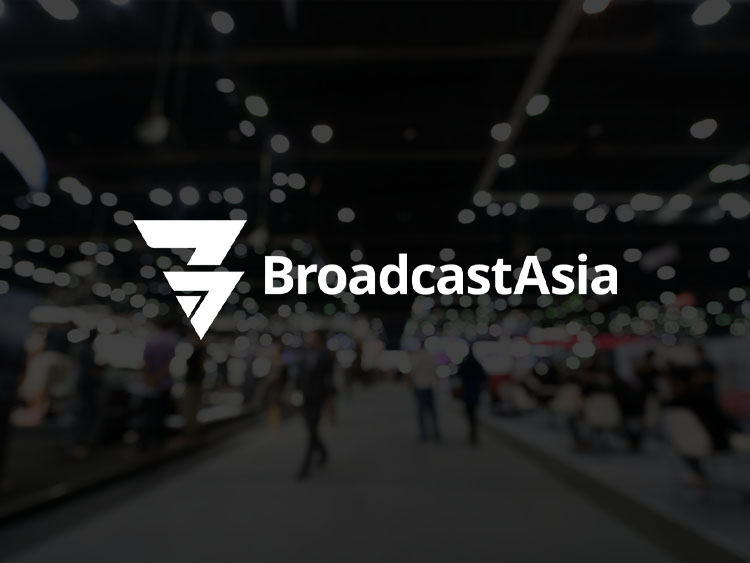Yokohama, Japan, May 10, 2024 – Leader Electronics Corporation, globally active innovator of broadcast-quality test and measurement instrumentation, will highlight three latest-generation test and measurement instruments on stand 6C1-5 at Broadcast Asia 2024 at the Singapore Expo, Wednesday May 29 through Friday 31. All are designed to ease the media industry’s transition from SDI to IP, HD to UHD and SDR to HDR.
The new instruments comprise the ZEN-W Series LV5600W waveform monitor and ZEN-W LV7600W rasterizer. Also new are additions to the feature set of Leader’s flagship ZEN Series.
Broadcast Asia debut: Leader ZEN-W Series waveform monitor and rasterizer with WebRTC connectivity
Leader’s new ZEN-W Series consists of the LV5600W waveform monitor and its LV7600W rack-mountable equivalent. The LV5600W is a 3U high half-rack-width unit with an integral 7 inch touchscreen. The LV7600W occupies a compact 1U and has SDI plus TMDS monitor outputs. Developed from the established LV5600 and LV7600, these latest-generation instruments are designed to satisfy the most demanding broadcast media test and measurement environments. Each incorporates a wide range of new features plus a WebRTC interface which allows secure remote control and monitoring from a web-connected desktop or laptop computer. Both models also gain an upgraded operating system offering higher security and more flexible future-proofing.
Broadcast Asia debut: Expanded test and measurement toolset for Leader ZEN Series
Leader’s ZEN Series has gained many new features and options since its original launch in 2018. The ZEN Series comprises the LV5600 UHD/HD/SD SDI/IP waveform monitor and LV7600 equivalent rasterizer, LV5300A portable 12G/3G/HD/SD-SDI waveform monitor with eye-pattern and jitter measurement, plus the LV5350 waveform monitor and the LV7300 rasterizer. Newly expanded capabilities include:
• SDR Full Range display. This feature extends SDR Full Range support to display black error, CIE, gamut error, histogram, level error, audio/video timing offset, noise level, test signals, vector and waveform. Also fully supported for SDR Full Range are CINELITE and CINEZONE, five-bar, frame capture (DPX, TIFF) and image quality adjustment.
• CINEZONE User-A and User-R presets. Support for User-A (ARRI) and User-R (RED) cameras is an expansion of the Leader CINEZONE/CINELITE toolset which comes as standard on all Leader ZEN Series models. CINELITE is a built-in light meter that enables on-set production and postproduction service-providers to analyze a single pixel or small area of the image in either luminance, RGB, code values or f-stops. CINEZONE overlays false colors on the image. It colors the strong and weak areas of brightness on the picture display so an operator can judge the luminance conditions of the entire screen.
• HDR/SDR/HDR conversion via 3D LUT file import. A new integral bidirectional conversion tool now allows HDR content to be viewed in SDR and vice versa. Processing is based on the desired 3D color lookup table which can be imported via plug-in USB memory. The 3D LUT capabilities simplify live production workflows by integrating HDR/SDR conversion for applications such as camera shading and HDR supervision. On-set DITs can integrate 3D LUTs instead of relying on external LUT boxes. Postproduction colorists can view the 3D LUTs for OTT and OTA deliverables prior to creating the final master. Reference 3D color lookup tables can be imported via plug-in USB memory for activity such as camera shading and HDR supervision.
• New audio-related features. These include an audio mapping capability which simplifies the task of checking the level of IP audio streams. The audio level display can be flexibly configured for easy supervision.
• NMOS-based IP video switching: IP video is subject to visible discontinuity when switched between transport streams, unlike SDI signal switching which is normally performed via a router to maintain visual continuity. This new feature supports seamless high-speed switching of synchronized SMPTE ST 2110-20 IP video signals.
• Closed Caption support: This toolset can now handle multilingual closed captions in the CC608, CC708 and OP47 categories which collectively cover most European languages.
• Enhanced timecode continuity monitoring. Now including date display and source ID.
• Preset data sharing between waveform monitor and rasterizer: Administrative features introduced include the ability to transfer preset data between two units via USB plug-in memory.
Broadcast Asia debut: Leader LT4670 SDI/IP test signal generator
Leader’s LT4670 is a 1U full-rack width synchronous SDI/IP reference and test signal generator for use in traditional SDI broadcast facilities as well as hybrid SDI/IP facilities. The standard LT4670 toolset includes: Genlocked black burst signals and tri-level sync pulse generation; Stay-in-sync function for use in the event of an error in the incoming genlock signal; Slow-lock stabilization when returning to genlock from stay-in-sync; 48 kHz word-clock signal output synchronized to incoming video; Synchronous control between devices (L-SYNC); Preset and memory functions.
Connectivity capabilities include six independent analog synchronous signal outputs, digital audio outputs, word-clock outputs and LTC in/out. Auxiliary power supplies and fans can be hot-swapped into the unit to ensure workflow continuity. The LT4670 can be optionally augmented to include GNSS synchronization, PTP synchronization, support for four multi-rate SDI test signal outputs (up to 12G) plus two 10G/25G Ethernet ports for ST 2110 test signal streams with ST 2022-7 redundancy. A Lip-Sync Pattern option enables measurement of video and audio timing discrepancies on SDI signal transmission. A User Pattern option allows customer‐generated BMP and TIF images to be deployed as test patterns. Superimposed Embedded Audio enables 16 channels of embedded audio (four groups of four) to be superimposed. Timecode Pattern display can be superimposed at any position on the screen. A Freeze Confirmation function provides support for scrolling patterns, moving boxes, scrolling ID character flashes, or flashing circles superimposed on patterns.

